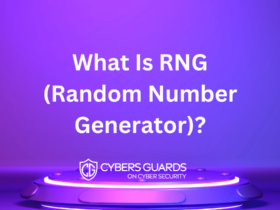The online gaming sector has grown in recent years and is predicted to earn up to $200 billion in revenue by 2022, according to forecasts from industry analysts. The gaming sector is seeing this rapid growth because of the numerous technological advancements that have been made. The increase in interest and development in this industry has occurred due to the push received from the Cloud Computing area and other popular gaming platforms. Leading gaming businesses are transitioning to cloud-based systems to provide a much-improved gaming experience for their users. As a result, the the number of people who play online games has increased by many orders of magnitude in the last decade.
Online games are becoming more popular among the younger generations, and many folks with access to the Internet like playing online games that are now more accessible to them.
A large part of the population has even started establishing and maintaining online gaming profiles, and these gamers commit their free time to play and enjoy online games.
Unfortunately, this online environment may sometimes become a hacker’s hunting ground.
They attempt to get these people’s credentials to modify data and use it for their financial or personal gain. Attacks on gaming platforms are becoming more frequent, posing a concern and increasing the risk for those who utilize these platforms. The gaming community is not immune to cybersecurity dangers because of its dependence on online access. Online gaming accounts are connected to sensitive information such as personal and financial information, which is collected, kept, and utilized when buying new games. If used to its full potential, this information might be a lucrative target for hackers. Users must be aware of cybersecurity concerns if they want to avoid being targeted and continue to enjoy the magical realms of their games.
Gaming Service
An Overview of the Most Common Threats
A computer virus may infect anybody with internet access. Computer viruses may be spread by downloading a malicious file or playing a game on an unsecured website. Trojan infections, which imitate legitimate software, are among the most popular ways cybercriminals steal data from a device. In addition, ransomware, generally linked with businesses, has been discovered to infiltrate gamers’ PCs and consoles. The gamer’s data is usually taken and can only be recovered if the victim pays a ransom.
According to the FBI, phishing, the preferred method of attack for hackers, is widely used in the gaming industry. Unscrupulous persons often send messages to victims posing as trustworthy users seeking personal information. This information is then utilized to blackmail
the victim or conduct fraud in their name. It is by far the most widely publicized gaming industry cybersecurity concern today. Hackers imitate well-known gamers by stealing or inventing their identities. They exploit their personalities and profiles to extort money, make false promises to tarnish the gamer’s reputation, conduct fraudulent transactions, and promote unlawful investment schemes. If the hacker isn’t found, the person who owns the gaming profile faces considerable challenges. It discourages new players and fosters mistrust in the platform, affecting the platform’s image and the online gaming business as a whole.
Every security compromise includes data tampering or theft. Once hackers get access to a large amount of players’ data, they can do anything with it. They may sell this information to other parties, alter or use it for illicit purposes, or blackmail the genuine identity behind the profile or persona. The information provided by individuals about their online activities and social media interactions may be stolen and used, threatening their privacy. In addition, players may unwittingly become targets of spyware activities if they work with a shady online gaming group. Spyware is software that covertly tracks and records a user’s online activities. If this data is acquired, it may be sold to other parties, compromising personal and professional privacy.
Most Common Threats
How To Avoid These Cybersecurity Threats
Because there are ways to prevent these threats and have a safer online experience, gamers should not quit their gaming gadgets out of fear. VPNs are great for hiding sensitive data on the Internet. As a result, a VPN is a very effective shield against identity theft and other online risks. Antivirus software may scan for known viruses and alert the user to take action if one is found. The application automatically scans the system to secure it when harmful files are detected. This application may also protect against ransomware, malware, Trojans, and spam. That said, antivirus software only protects you from known threats.
Aside from gaming, don’t trust free public Wi-Fi, even at the Apple Store, since hackers have developed hacking techniques into these networks to steal important information from users. Avoid using public Wi-Fi to access sensitive data such as bank accounts and instead connect to your network provider. The cell phone network is encrypted, whereas the documents you fill out to receive free Wi-Fi usually contain a clause stating that your data can be sold.
It’s also crucial to follow basic password security measures for your own sake. Users should use unique passwords for each online gaming and gambling account. Long passphrases with no personal links are ideal, and famous names should be avoided at all costs. If remembering several passwords is a pain, consider using a password manager.
Finally, before selling, gifting, or donating a device, be sure all the information on it has been erased. Because these systems contain sensitive and valuable data, all data must be deleted. Performing a factory reset on the computer or engaging a data removal company to delete the hard drive entirely may accomplish this.
Stay Safe
Protecting your identity and sensitive information is critical in many fields, including gaming. In a game, you can respawn, but the same can’t be said for real life. These security guidelines may help players enjoy online games in a safer setting.










FIND US ON SOCIALS